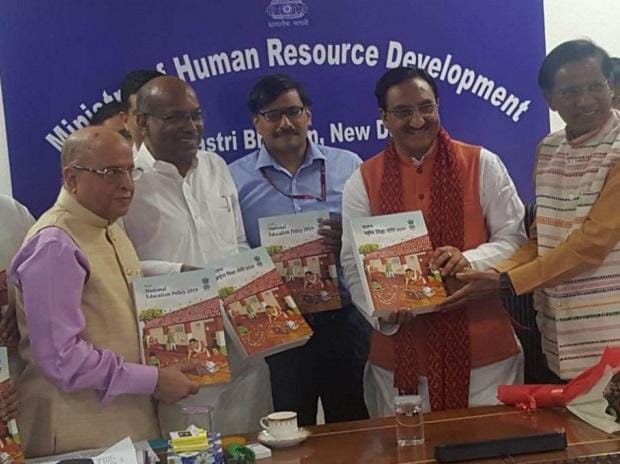Draft
of a new education policy released by the Centre came under fire from
Opposition parties who alleged that it proposes to 'impose Hindi' on
non-Hindi speaking states.
Draft
of a new education policy released by the Centre has made Hindi the
centre of a controversy. Among several proposals made in the draft
National Education Policy (NEP), the one clause that came under fire
was the "3-language
formula". The proposal was seen as a move to impose Hindi on
non-Hindi speaking states.
The
contentious paragraph in the draft has now been revised.
The
draft NEP, uploaded on the HRD Ministry's website on Friday sought to
make Hindi
a mandatory third language to be taught in schools across the
country.
"Students
who wish to change one of the three languages they are studying may
do so in Grade 6, so long as the study of three languages by students
in the Hindi-speaking states would continue to include Hindi and
English and one of the modern Indian languages from other parts of
India, while the study of languages by students in the
non-Hindi-speaking states would include the regional language, Hindi
and English," the earlier draft policy said.
After
the uproar, the Central government on Monday released a revised draft
NEP. The new draft has removed the clause that was seen as imposition
of Hindi by several states.
The
new draft now states: "In keeping with the principle of
flexibility, students who wish to change one or more of the three
languages they are studying may do so in Grade 6 or Grade 7, so long
as they are able to still demonstrate proficiency in three languages
(one language at the literature level) in their modular Board
Examinations some time during secondary school."
This
is not the first time that the country is witnessing protests against
Hindi.
Tamil
Nadu had always resisted the "imposition" of Hindi. In
1965, the state witnessed violent protests against a proposal that
Hindi would be India's only official language.
The
anti-Hindi sentiments in Southern states, especially Tamil Nadu, is
not just a language affair. According to a report in The Hindu,
imposition of Hindi is seen as the hegemony of the North and the
introduction of mono-culture.

No comments:
Post a Comment